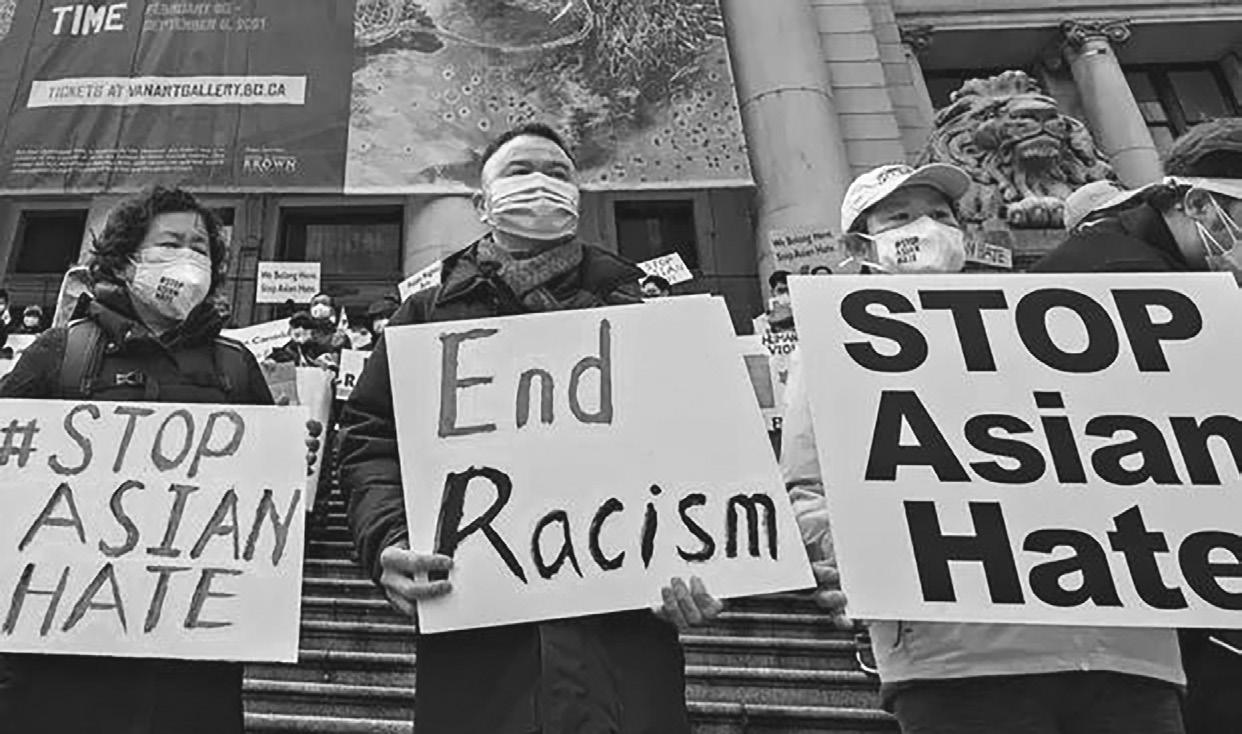
2 minute read
Government of Canada ramps up anti-China rhetoric and racism
The Canada-China Focus, a project of the University of Victoria’s Centre for Global Studies and the Canadian Foreign Policy Institute issued an open letter in March 2023. Fire This Time is reprinting an excerpt of this letter which we find to be an important and educational rebuttal to the growing anti-China rhetoric and xenophobia in Canada. Imperialist attacks on China have come together with an attack on free speech in Canada to suppress voices of dissent. Accusations, lies, and false narratives are part of the manipulation, which shapes public opinion, demonizing China and establishing Sinophobia. All and all, this curtailing of freedom of speech and assembly is an attempt by Canada, the U.S., and the other imperialists to ensure the dominance of a singular narrative on China – the proimperialist narrative. As well, these attacks prevent public discourse and transparency on China, as we have seen in the last two decades of the spread of Russophobia, Sinophobia, xenophobia, and Islamophobia. For the full open letter: www.ccfocus.ca
An Open Letter to the Right Honorable David Johnston, Independent Special Rapporteur, Government of Canada.
We are deeply concerned that discussions of foreign interference and national security can quickly become toxic as we have already seen in the accusations that a respected Chinese Canadian senator and a newly elected mayor are agents of the Chinese government. Such accusations can quickly lead to gross violations of people’s
democratic rights and personal security.
During the Second World War, the Canadian government uprooted and dispossessed 23,000 Japanese Canadians because some people accused them of being spies or a fifth column for Japan, accusations that history has shown to be groundless. We have also seen how similar unfounded accusations damaged or destroyed the lives and reputations of distinguished Canadians such as Maher Arar, John Holmes, Paul Lin, or Herbert Norman.
We affirm that all countries including Canada have the right to demand respect for sovereignty and non-interference in their political affairs. We deplore any instance when nation-states, be they China, Russia, the U.S., or even Canada, contravene the principle of non-interference through election meddling, covert operations, or other inappropriate actions including the targeting of activists and their families.
At the same time, we are deeply concerned that government initiatives announced to help combat foreign interference risk creating more problems than they solve. For too many, “foreign interference” is simply a codeword for “Chinese” with all the racist overtones that have been imposed on that term.
Given Canada’s own history of racism, colonialism, and the dispossession of Indigenous peoples, defining what or who is “foreign” may become extremely problematic. Through their family connections, economic activities, and educational journeys, many Canadians are linked to people and institutions around the world in multiple, complex ways. Drawing lines between what and who is Canadian, and what or who is foreign can be extremely divisive.
The initiatives announced to date suggest that strengthening national security agencies such as CSIS and the RCMP will help combat foreign influence. Yet these agencies have documented histories of racism towards Indigenous, Muslim, and other racialized communities, of repressing dissent, and promoting environmental racism.

It is a real danger that this exercise will instigate further indiscriminate and unsubstantiated accusations of disloyalty, subversion, or treason. And the potential impact on international relations should not be underestimated.
Few if any states are immune from engaging in foreign interference, including Canada and its ally the United States. The latter has engaged in at least 64 fully documented attempts at covert regime change. As the New York Times recently declared, “By the standards of superpowers, China remains a homebody. Its foreign engagements, especially outside its immediate surroundings, remain primarily economic.”









